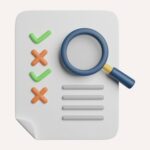As young adults begin their journey into independence, financial management becomes a crucial skill to master.
The habits and strategies developed in these formative years can set the stage for a lifetime of financial stability and success.
In this blog post, we’ll cover 10 essential financial tips for young adults.
These tips will help you create a solid financial foundation, save for the future, and make the most of your money.
Financial Tips for Young Adults
1. Create a budget
Budgeting is the cornerstone of personal finance. It helps you understand where your money is going, set financial goals, and make informed decisions about your spending.
Steps to create a budget are:
- Calculate your monthly income: Add up your paychecks, freelance income, or any other sources of money.
- List your fixed expenses: These are the bills you must pay each month, such as rent, utilities, and student loan payments.
- Identify variable expenses: These are the costs that can change from month to month, like groceries, entertainment, and clothing.
- Set financial goals: Determine how much you want to save or invest each month.
- Allocate your income: Distribute your monthly income across your expenses and financial goals.
- Track your spending: Monitor your spending throughout the month to ensure you’re sticking to your budget.
- Adjust as needed: Make changes to your budget as your financial situation or goals evolve.
There are numerous budgeting apps and tools available to help you create and maintain a budget.
Some popular options include Mint, YNAB (You Need a Budget), and EveryDollar.
2. Build an emergency fund
An emergency fund is a savings account specifically designed to cover unexpected expenses, such as medical bills, car repairs, or job loss.
Having an emergency fund can help you avoid going into debt when unexpected financial challenges arise.
Most experts recommend saving three to six months’ worth of living expenses in your emergency fund.
This amount should cover your basic necessities, such as housing, food, and utilities.
Some of the best strategies for building an emergency fund are:
- Start small: Set an initial goal of saving $1,000, then work towards your larger emergency fund goal.
- Automate your savings: Set up automatic transfers from your checking account to your emergency fund each month.
- Save windfalls: Allocate any unexpected income, such as tax refunds or bonuses, to your emergency fund.
3. Pay off high-interest debt
Debt comes in many forms, including credit cards, student loans, auto loans, and personal loans. Some debts, like credit card debt, typically have high interest rates, making them more expensive over time.
Focus on paying off high-interest debt first, as it’s the most costly.
Once you’ve paid off your high-interest debt, continue to pay off other debts in order of their interest rates.
Some great tips for paying off debt faster are:
- Make extra payments: Whenever possible, make additional payments towards your debt principal.
- Use the debt avalanche method: Pay off debts with the highest interest rates first, then move on to those with lower rates.
- Consider debt consolidation: Consolidate multiple high-interest debts into a single loan with a lower interest rate.
4. Save for retirement early
The earlier you begin saving for retirement, the more time your money has to grow through compound interest.
By starting young, you can potentially save less overall and still achieve a comfortable retirement.
Some of the best retirement account options are:
- 401(k) or 403(b): These are employer-sponsored retirement accounts that allow you to contribute a portion of your salary pre-tax. Many employers also offer matching contributions.
- Traditional IRA: This is an individual retirement account that allows you to make pre-tax contributions, which can lower your taxable income.
- Roth IRA: A Roth IRA allows you to contribute after-tax dollars, but your withdrawals in retirement are tax-free.
A common rule of thumb is to save at least 10-15% of your income for retirement.
However, the exact amount you should save depends on factors such as your age, income, and desired retirement lifestyle.
5. Understand credit and maintain a good credit score
Your credit score is a numerical representation of your creditworthiness.
A good credit score can help you secure lower interest rates on loans, qualify for better credit cards, and even impact your ability to rent an apartment or secure a job.
Factors that affect credit score are:
- Payment history: Consistently paying your bills on time is crucial for maintaining a good credit score.
- Credit utilization: Aim to use less than 30% of your available credit limit to keep your credit score healthy.
- Length of credit history: The longer your credit history, the more information lenders have to assess your creditworthiness.
- Types of credit: A diverse mix of credit types, such as credit cards and loans, can improve your credit score.
- Recent credit inquiries: Too many hard inquiries in a short period can negatively impact your credit score.
Some of the best tips for improving and maintaining credit are:
- Pay your bills on time: Set up payment reminders or automatic payments to ensure timely bill payment.
- Keep credit card balances low: Aim to use only a small portion of your available credit.
- Don’t close old credit accounts: Keep your oldest credit accounts open, as they contribute to your credit history length.
- Monitor your credit report: Regularly review your credit report for errors or signs of identity theft.
6. Invest in yourself
Investing in your education and skills can lead to higher-paying job opportunities and increased job security.
You should consider taking classes, attending workshops, or obtaining certifications to enhance your professional value.
Building a strong professional network can open doors to new opportunities and help you learn from others’ experiences.
You can attend industry events, join online forums, and reach out to potential mentors.
Personal development can improve your overall well-being and contribute to your professional success. Focus on self-care, time management, and cultivating a growth mindset.
7. Be financially literate
Financial literacy is the understanding of various financial concepts, such as budgeting, investing, and credit management.
Being financially literate allows you to make informed decisions and take control of your financial future.
The top resources for learning about personal finance are:
- Books: Many personal finance books offer guidance on budgeting, investing, and debt management.
- Online courses: Websites like Coursera and Udemy offer courses in personal finance and investing.
- Blogs and podcasts: Follow personal finance blogs and podcasts for tips, advice, and inspiration.
Keep up-to-date with the latest economic news and trends to better understand how they may impact your personal finances.
8. Practice mindful spending
Learn to distinguish between necessities, like food and shelter, and desires, such as the latest gadgets or designer clothes. Prioritize spending on needs while limiting spending on wants.
Some of the best tips for controlling impulse buying are:
- Implement a waiting period: Before making a purchase, give yourself time to consider if it’s truly necessary.
- Shop with a list: Create a shopping list before you go to the store, and stick to it.
- Unsubscribe from marketing emails: Avoid temptation by reducing exposure to promotional emails from retailers.
You can save on everyday expenses by the following ways:
- Buy in bulk: Purchase non-perishable items in larger quantities to save money.
- Use coupons and cashback apps: Take advantage of coupons, discounts, and cashback apps to save on purchases.
- Cook at home: Eating out can be expensive; save money by preparing meals at home.
9. Utilize tax-advantaged accounts
You can use two types of tax-advantaged accounts:
- Health Savings Account (HSA): An HSA allows you to save pre-tax dollars for medical expenses if you have a high-deductible health plan.
- 529 College Savings Plan: This plan allows you to save for education expenses on a tax-advantaged basis.
Using tax-advantaged accounts can help you save more money over time, as your earnings grow tax-free or tax-deferred.
Research the requirements and benefits of each tax-advantaged account, then open an account through a financial institution or brokerage firm. Contribute regularly to maximize your savings.
10. Protect yourself with insurance
You should protect yourself by buying insurance:
The types of insurance young adults should consider are:
- Health insurance: Covers medical expenses in case of illness or injury.
- Renters insurance: Protects your personal belongings in a rented home or apartment.
- Auto insurance: Provides financial protection in case of a car accident.
- Disability insurance: Replaces a portion of your income if you’re unable to work due to disability.
- Life insurance: Provides financial support to your dependents in case of your death.
Evaluate your personal situation and risks to determine the types and amounts of insurance coverage you need. Shop around and compare policies to find the best rates and coverage.
The tips for saving on insurance premiums are:
- Maintain a good credit score: Insurance companies often use credit scores to determine premiums.
- Bundle policies: Combine multiple insurance policies with a single insurer to receive discounts.
- Choose higher deductibles: Opting for a higher deductible can lower your premium, but be prepared to pay more out-of-pocket in case of a claim.
Conclusion
I hope these 10 financial tips covered everything that a young adult needs to know to take control of their finances and build a strong foundation for financial stability.








